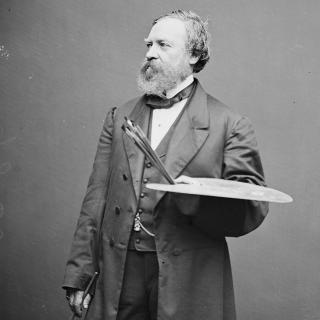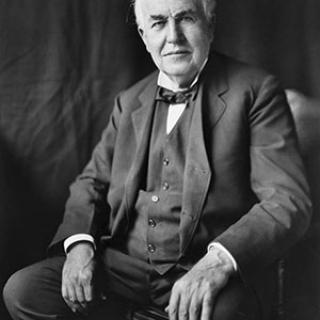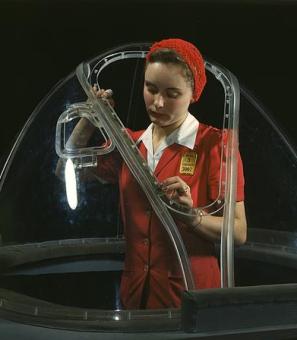Remembering Elizabeth Campbell
January 9, 2004 was a very sad day for us here at WETA. It was the day that we lost Elizabeth Campbell, our founder and a pillar in the Washington, D.C. area community. The WETA that we know is the result of Mrs. Campbell's vision.
Mrs. Campbell was born on December 4, 1902, in Clemmons, North Carolina, the daughter of John Kenneth Pfohl, a minister of the Moravian Church. She graduated from Salem Academy and Salem College, and received her master’s degree in Education from Columbia’s Teacher’s College in New York.
An educator for most of her adult lifetime, Mrs. Campbell taught literature at Salem Academy, served as the dean of the Moravian College in Bethlehem, Pennsylvania and at the Mary Baldwin College in Staunton, Virginia, where she met her husband, attorney Edmund Campbell. The two married in 1936, and moved to Arlington. In 1947, she ran for Arlington’s new school board, and became the first woman elected to a school board in the history of Virginia. She also supported Edmund's successful legal campaign to end segregation in Virginia schools. (Arlington was the first county in the Commonwealth to integrate schools when four African American students enrolled in Stratford Junior High School in February 1959.)
Recognizing the educational potential of television very early on, Mrs. Campbell and a group of fellow visionaries created the Greater Washington Educational Television Association — a coalition of local schools, universities, and cultural institutions — in 1953. The group lobbied Congress for funding to grow and develop educational television. GWETA's first production, Time for Science, went on the air in 1958, broadcast on a commercial station since GWETA did not yet have a station of its own. Three years later, Campbell and her partners celebrated the launch of WETA Television. (You can watch WETA's first broadcast, A New Era, on our video player. Jump ahead to 21:00 to see Mrs. Campbell discuss the potential of the new station.)
Elizabeth Campbell served as WETA's president until 1971, when she stepped down to become the Vice President of Community Affairs — a job she held until her death at the age of 101. In all her years of service to the station, she never took a salary. For more on her life and work, including audio and video clips, check out the Our Founder page on weta.org.
May you continue to rest in peace, Mrs. Campbell. Thank you for everything you did to serve WETA and the Washington community.




![Sketch of the mythical fuan by Pearson Scott Foresman. [Source: Wikipedia]](/sites/default/files/styles/crop_320x320/public/2023-10/Goatman_Wikipedia_Faun_2_%28PSF%29.png?h=64a074ff&itok=C9Qh-PE1)












